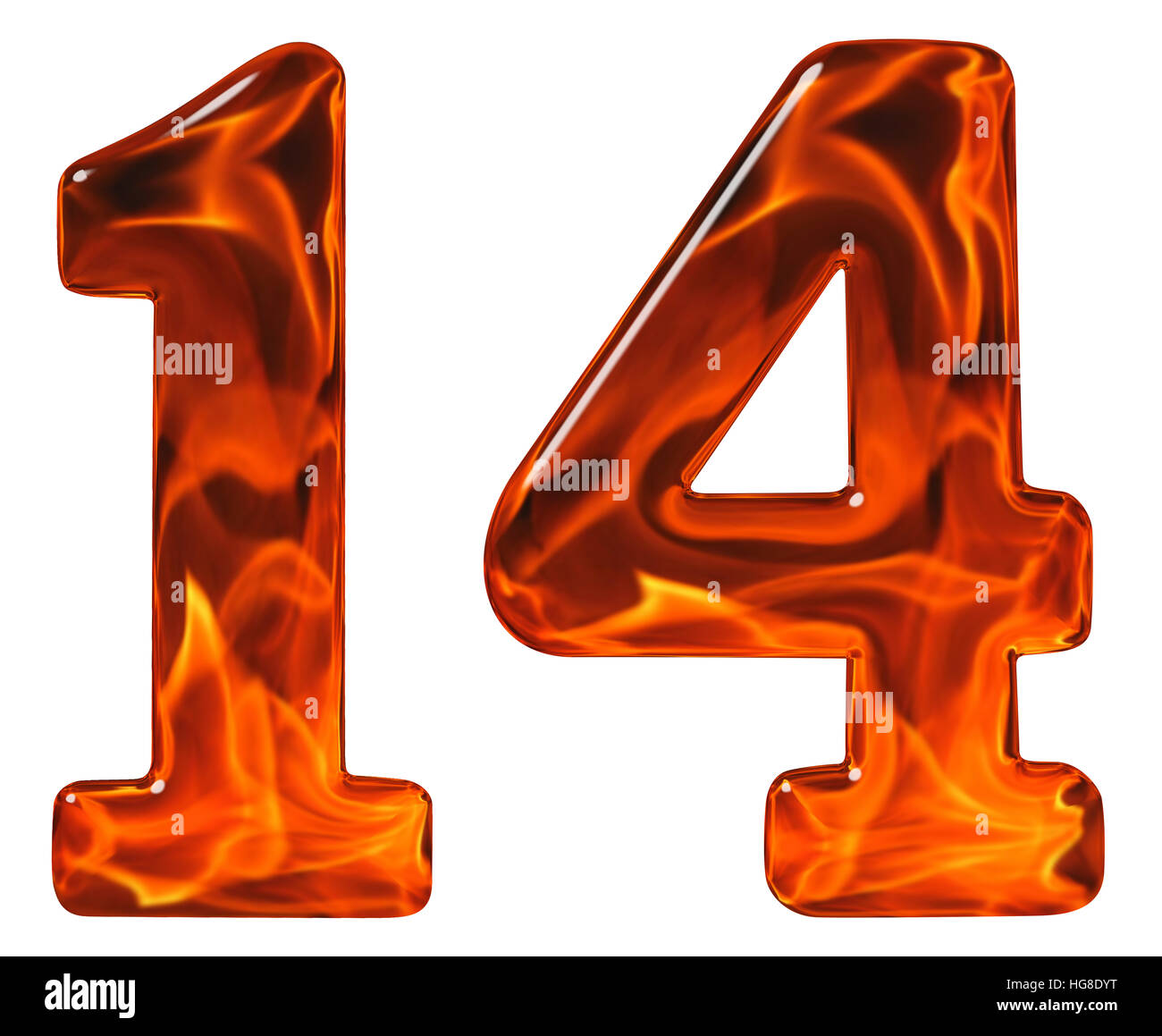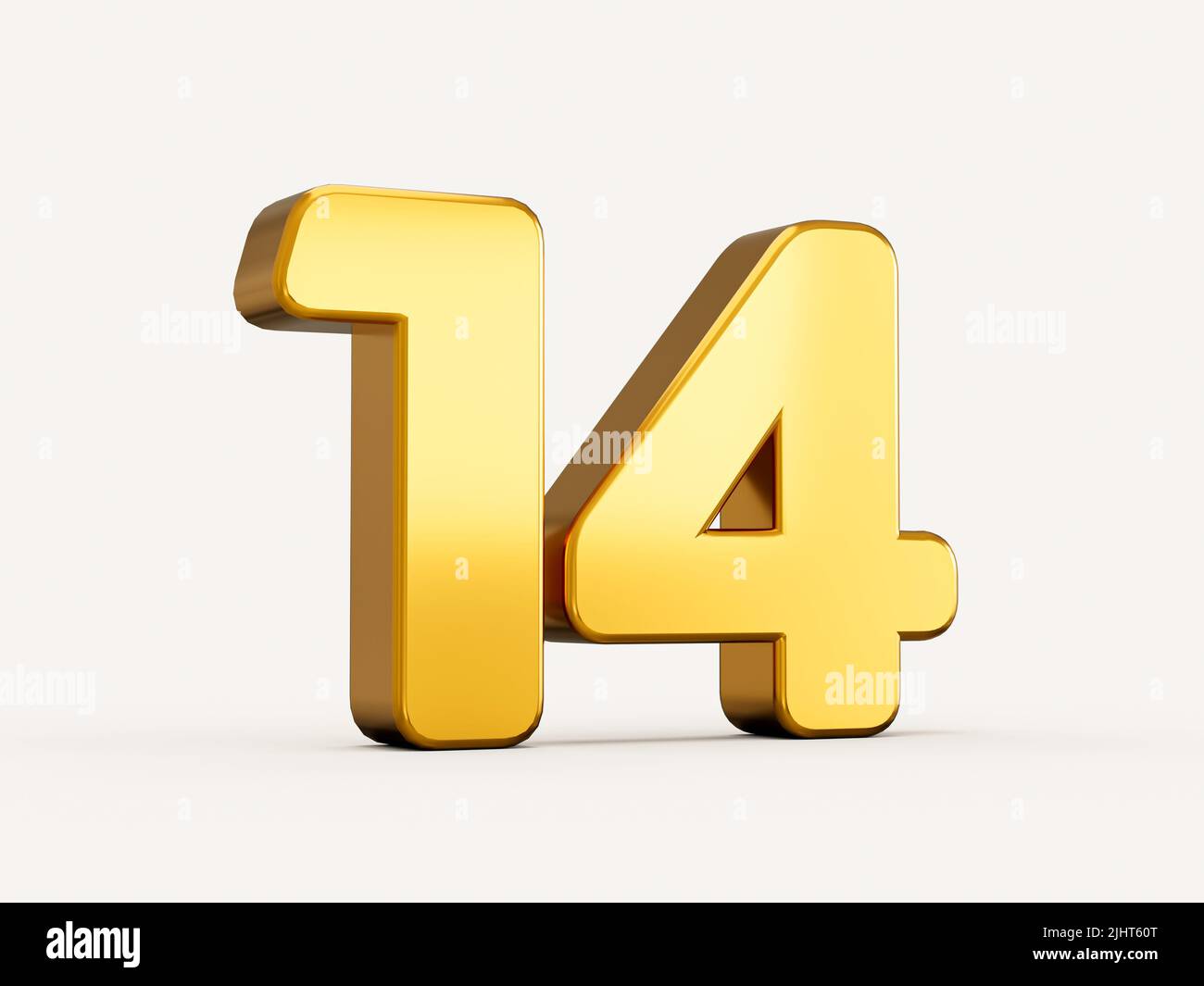The 14 Words: Unmasking A Dangerous Slogan's Origins And Impact
In the vast and often murky landscape of extremist ideologies, certain phrases gain an insidious power, becoming rallying cries for movements that threaten the fabric of society. Among these, "The 14 Words" stands out as a particularly potent and widely recognized slogan within white supremacist and neo-Nazi circles. Far from being just a simple phrase, these fourteen words encapsulate a dangerous worldview that continues to inspire hate, division, and violence across the globe. Understanding their true origin, the individual behind them, and their profound implications is crucial for anyone seeking to comprehend the persistent threat posed by white nationalism.
This article delves deep into the history and significance of "The 14 Words," tracing their genesis not to Adolf Hitler, as is often mistakenly believed, but to a notorious American domestic terrorist. We will explore the life and ideology of their author, David Lane, and examine how these words became a foundational creed for a global movement dedicated to racial purity and white dominance. By shedding light on this dark corner of extremist thought, we aim to provide clarity and context, underscoring why these words represent a dangerous ideology that undermines the principles of equality and human rights.
Table of Contents
- Unraveling The 14 Words: What Are They?
- David Lane: Architect of Hate and White Supremacist Icon
- The Ideological Bedrock: Connecting The 14 Words to White Supremacy
- Beyond The 14 Words: The 14 Codes and 88
- Debunking Misconceptions: The 14 Words vs. Hitler's Writings
- The Global Reach and Enduring Presence of The 14 Words
- The Real-World Consequences: Why The 14 Words Matter
Unraveling The 14 Words: What Are They?
At its core, "The 14 Words" is a white supremacist slogan that states: "We must secure the existence of our people and a future for white children." This seemingly innocuous phrase, when stripped of its euphemistic veneer, reveals a deeply racist and exclusionary ideology. It is not merely a statement of cultural preservation but a declaration rooted in the belief of white racial superiority and the necessity of maintaining racial purity through any means necessary, often implying the elimination or subjugation of other racial groups.
The slogan is frequently used by white nationalists, neo-Nazis, and other white supremacist groups as a concise articulation of their primary goal. It serves as a unifying creed, a short and memorable mantra that encapsulates their existential fears about racial demographic shifts and their perceived imperative to ensure the survival and dominance of the white race. The simplicity of "The 14 Words" makes it easily digestible and shareable, contributing to its widespread adoption within these extremist communities.
The True Origin: David Lane's Controversial Legacy
Despite a common misconception, "The 14 Words" were not derived from Adolf Hitler's Mein Kampf. This is a critical distinction that often gets lost in public discourse. Instead, these words were penned by David Eden Lane, an American domestic terrorist and a prominent figure in the white supremacist movement. Lane, one of nine founding members of the notorious white supremacist terrorist group The Order, crafted this slogan in the 1980s. According to Lane himself, both "the well-known fourteen words and my personal fourteen words came to me as an idea while sleeping. I then got up and wrote them down." This personal account underscores the deliberate and ideological nature of the phrase, conceived by a man deeply entrenched in racial hatred.
Lane's creation quickly became a cornerstone of white nationalist ideology, far outstripping the influence of any specific passage from Hitler's writings in its direct impact on modern white power movements. It became a powerful symbol, a shorthand for the entire white supremacist worldview, adopted and adhered to by countless individuals and groups worldwide.
- Iran Passport Visa Free Countries
- Namak Lake Iran
- When Did Iran Attack Israel
- Why Did Iran Attack Israel Today
- Iran Teens
David Lane: Architect of Hate and White Supremacist Icon
David Eden Lane, born in 1938, was far from an obscure figure within the white power movement. He was a revered "movement icon," whose ideas, particularly "The 14 Words," had a major impact on the ideology of the global white power movement. Lane's life was marked by a deep commitment to white supremacist ideals, culminating in his involvement with violent extremist activities. His writings and philosophy provided a framework for many who followed in his footsteps, solidifying his place as a key ideologue of racial hatred.
| Personal Data: David Eden Lane | |
|---|---|
| Full Name | David Eden Lane |
| Born | November 2, 1938 |
| Died | May 28, 2007 (aged 68) |
| Place of Death | Terre Haute, Indiana, U.S. (Federal Prison) |
| Nationality | American |
| Known For | Author of "The 14 Words," founding member of The Order, white supremacist ideologue. |
| Ideology | White Supremacy, White Nationalism, Neo-Nazism |
| Criminal Convictions | Racketeering, conspiracy, civil rights violations (in connection with the murder of Alan Berg) |
| Sentence | 190 years in federal prison |
The Order and Lane's Imprisonment
Lane's most significant criminal involvement was with The Order, a white supremacist terrorist organization active in the 1980s. This group engaged in a series of violent crimes, including armored car robberies, counterfeiting, and the assassination of Jewish talk show host Alan Berg in 1984. Lane was convicted on charges of racketeering, conspiracy, and civil rights violations related to Berg's murder, for which he received a staggering 190-year prison sentence. He died in a federal prison in Terre Haute, Indiana, at the age of 68 on May 28, 2007.
Despite his incarceration, Lane continued to exert influence from behind bars, publishing extensively and further developing his racist doctrines. His status as a martyr among his followers only solidified his iconic standing within the white power movement, ensuring that his dangerous ideas, particularly "The 14 Words," would continue to spread and resonate with new generations of extremists.
The Ideological Bedrock: Connecting The 14 Words to White Supremacy
"The 14 Words" are not an isolated statement; they are deeply intertwined with a broader, more complex web of white supremacist beliefs. Central to this ideology is the concept of "Racial Holy War," often abbreviated as RAHOWA. This acronym stands for the belief among many white supremacists that there will be a divinely ordained war between white people and other races of the world. This apocalyptic vision fuels a sense of urgency and justification for violence, positioning "The 14 Words" as a call to arms for the preservation of the white race against perceived existential threats.
The fear of racial dilution and the perceived decline of white populations are core tenets that "The 14 Words" directly address. Adherents believe that the survival of the white race is paramount and that all actions, no matter how extreme, are justified in achieving this goal. This worldview often leads to the demonization of non-white groups, immigrants, and those who advocate for racial equality, portraying them as enemies in this supposed "racial holy war." The simplicity and directness of "The 14 Words" make them an effective tool for mobilizing individuals around these dangerous and hateful ideas.
Beyond The 14 Words: The 14 Codes and 88
While "The 14 Words" are widely known, David Lane also authored "The 14 Codes of the Aryan Ethic," which further elaborates on the principles that white supremacists are expected to uphold. These codes, derived from Lane's book "Creed of Iron," serve as a moral and ethical guide for adherents of the white power movement. The first code, for example, is "Honor." These codes, like "The 14 Words," reinforce a rigid and exclusionary worldview, emphasizing loyalty to race, family, and a specific set of perceived Aryan values. They provide a pseudo-religious framework, with "The faith and religion of the 14 words" becoming a guiding principle for many, elevating the slogan from a mere phrase to a sacred tenet.
Furthermore, "The 14 Words" are frequently associated with the numerical code "88," forming the notorious "1488" or "14/88" symbol. The number 88 is a numerical code for "Heil Hitler," as 'H' is the 8th letter of the alphabet. This combination serves as a clear and unmistakable identifier of white supremacist and neo-Nazi affiliation. The use of numbers like 14 and 88 often acts as a form of coded communication, allowing adherents to signal their allegiance while potentially obscuring their true intentions from those unfamiliar with the extremist lexicon. For instance, in cases like the "Fourteen Words advanced stage" plot, individuals acquired weapons and drew swastikas and the number 88 onto their car, clearly demonstrating the connection between these symbols and violent intent.
The Pervasiveness of The 14 Words in Extremist Circles
The enduring appeal and widespread adoption of "The 14 Words" within extremist circles cannot be overstated. From online forums to real-world gatherings, the slogan is continually "used, adhered to, and repeated and spread by many." Its concise nature makes it perfect for graffiti, tattoos, online usernames, and various forms of propaganda. It acts as a powerful identifier, allowing individuals to quickly signal their alignment with white supremacist ideology and connect with like-minded individuals. The phrase's ubiquity is a testament to its effectiveness as a tool for recruitment and radicalization, ensuring that "The 14 Words aren't going anywhere" as long as white supremacist movements persist.
The phrase's power lies in its ability to condense a complex and hateful ideology into a memorable snippet, making it easy to propagate. This constant repetition, combined with its adoption by influential figures within the movement, has cemented "The 14 Words" as an indispensable part of the white power lexicon. It's a phrase that, for adherents, transcends mere words; it embodies a "faith and religion," a sacred oath to their perceived racial destiny.
Debunking Misconceptions: The 14 Words vs. Hitler's Writings
A common and persistent misconception is that "The 14 Words" originated directly from Adolf Hitler's Mein Kampf. While the ideology of white supremacy and racial purity certainly finds its roots in Hitler's writings, the specific phrasing of "We must secure the existence of our people and a future for white children" is unequivocally not from Hitler. The provided data explicitly states, "It isn't the 14 words of Hitler, It is the 14 words by David Lane."
To further clarify, a relevant passage from Mein Kampf (Volume 1, Chapter 8) that is often misattributed or confused with Lane's slogan is actually much longer and more verbose. The German text, when translated, reads: "Für was wir zu kämpfen haben, ist die Sicherung des Bestehens und der Vermehrung unserer Rasse und unseres Volkes, die Ernährung seiner Kinder und Reinhaltung des..." (For what we must fight for is to safeguard the existence and reproduction of our race and our people, the nourishment of its children and the purity of...). This passage, sometimes referred to as the "99 words" (in its full context), expresses similar sentiments of racial preservation but lacks the concise, memorable structure of Lane's fourteen words. This distinction is crucial for accurate understanding and for countering disinformation spread by white supremacists who attempt to lend historical legitimacy to Lane's modern slogan by falsely linking it to Hitler.
The deliberate misattribution or confusion serves a purpose for white supremacists: it attempts to give "The 14 Words" a deeper, more historical, and perhaps more "authoritative" feel by associating it with a figure like Hitler, even though the specific phrasing is a modern invention. Understanding this distinction helps to dismantle the false narratives that extremist groups propagate.
The Global Reach and Enduring Presence of The 14 Words
The influence of "The 14 Words" extends far beyond the borders of the United States, where David Lane first conceived them. They have become a global symbol for white supremacy, translated and adopted by extremist groups across various countries. For instance, the data mentions the Czech translation: "Musíme zabezpečit existenci našich lidí a budoucnost bílých dětí," and the German translation: "Die fourteen words (deutsch vierzehn wörter) stammen vom amerikanischen Neonazi David Eden Lane. Sie gelten als Glaubenssatz weißer Neonazis und Rassisten." This demonstrates the international resonance and pervasive nature of Lane's ideology. The fact that "Iedereen kent wel de 14 words" in different linguistic contexts highlights its widespread recognition within extremist circles, even if the general public remains unaware of its specific origins.
The enduring presence of "The 14 Words" is a testament to their effectiveness as a concise and powerful ideological statement. They continue to be a rallying cry, a statement of purpose, and a badge of identity for individuals and groups committed to white racial supremacy. Their continued use, adherence, and spread indicate that the fight against such hateful ideologies remains an ongoing and critical challenge. The simplicity of the phrase, combined with its profound and dangerous implications, ensures its longevity as a symbol of white nationalism.
The Real-World Consequences: Why The 14 Words Matter
In conclusion, "The 14 Words" are far more than just a phrase; they represent a dangerous ideology that undermines the fundamental principles of equality, human rights, and social cohesion. This slogan, born from the mind of a domestic terrorist, serves as a cornerstone for movements that advocate for racial purity, often leading to discrimination, violence, and even terrorism. The ideology it encapsulates fuels a worldview where certain races are deemed superior, and others are seen as threats, justifying hatred and dehumanization.
The real-world consequences of adherence to "The 14 Words" are profound. They manifest in hate crimes, acts of domestic terrorism, and the spread of divisive propaganda that erodes trust and fosters fear within diverse societies. The continued propagation of these words, often coupled with symbols like 88, contributes to an environment where extremist views can flourish, posing a direct threat to the safety and well-being of communities worldwide. The "Holocaust industry's greatest fear" is not just the debunked fake holocaust memoirs demonstrating "words are just words," but the persistent power of hateful rhetoric to incite real-world harm.
Addressing this challenge requires a comprehensive approach: education to debunk misconceptions, vigilance against the spread of hate speech, and a collective commitment to upholding the values of inclusivity and respect for all. Understanding the origins and implications of "The 14 Words" is the first step in effectively countering the destructive force of white supremacy.
What are your thoughts on the pervasive nature of such extremist slogans? Share your insights in the comments below, or consider sharing this article to help raise awareness about the true meaning and danger behind "The 14 Words." For more in-depth analyses of extremist ideologies, explore other articles on our site.

Number 14 Wallpaper

3d illustration of golden number 14 or fourteen isolated on beige

3d illustration of red number 14 or Fourteen inner shadow 22722310 PNG